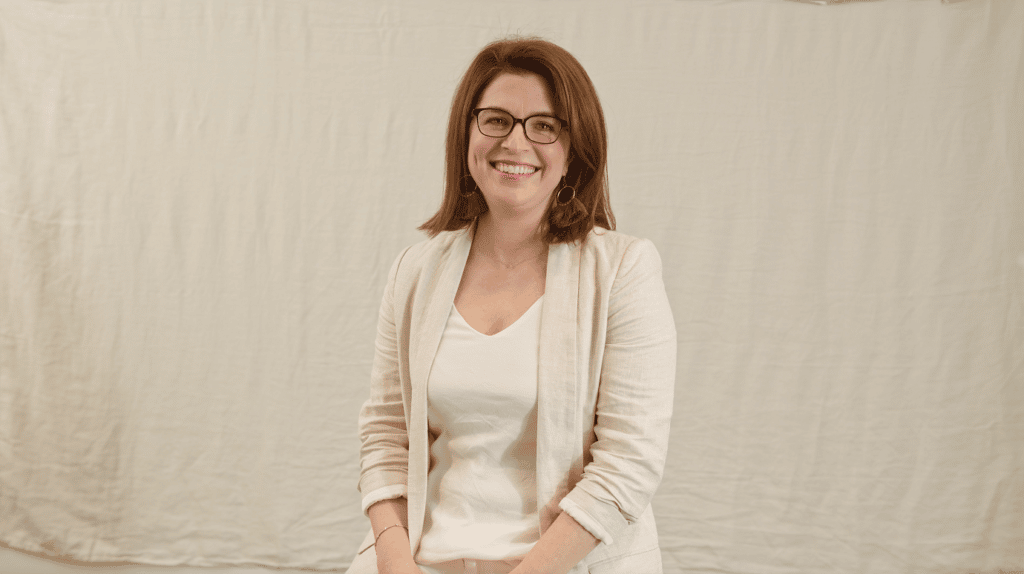As a general practitioner, Dr Joanna Sharp knows all too well the challenges doctors can face talking to patients about weight management, not to mention the hesitancy patients have in bringing up the subject themselves.
“It is almost easier to check someone’s blood than it is to talk about a patient’s weight,” she tells Women’s Agenda.
But supporting patients in weight management and minimising chronic health risks related to obesity is a key part of any GP’s role.
And it’s just one reason why Dr Sharp sees telehealth as an essential evolution for GPs, having personally been involved in telemedicine and understanding its potential well before the pandemic.
In her work, Dr Sharp advocates for women taking control of their health needs. She sees telehealth as a way to break down the barriers that may be associated with concerns around the topics of contraception, menopause and weight management – which are generally more sensitive for patients.
Having worked with a telemedicine startup in 2015, Dr Sharp now runs her own practice based on Sydney’s North Shore and is also a consulting doctor with women’s health platform, Juniper.

She says telehealth appointments can be an opportunity to “quarantine some time” to address chronic illnesses as well as other risks. “Patients will prioritise seeing a GP for an infected finger, but not necessarily for what could be a chronic disease: obesity.”
It’s on treating obesity that Dr Sharp’s work at Juniper currently centres. Initially focused on supporting women experiencing symptoms of menopause, Juniper’s focus has evolved towards offering medically backed comprehensive weight management programs that incorporate medication, dietitian-led health coaching, and one-to-one health tracking with Australian doctors.
Juniper’s Weight Reset Program assists those who are struggling with their weight or living with obesity. It aims to address the research findings that up to 80 per cent of weight is determined by our genetics, which for many women, is why the vast majority of diets fail.
The Australian-first program is supported by a number of GPs, including Dr Sharp, along with Dr Tania Chin, Dr Matthew Vickers, and around 20 others, all of who are qualified GPs and members of the Fellowship of the Royal Australian College of General Practitioners (FRACGP).
Key to the program’s success is removing the barrier of having to attend a traditional, in-person doctor’s appointment for the initial consultation. The program instead takes women through an online quiz, followed by a text-based consultation with a Juniper doctor for women who are eligible for the program based on their health and BMI.
If medication is prescribed, the cost of Juniper’s program comes in around the same daily price as what patients would pay for the exact same medication at the pharmacy – only the Juniper program comes with access to online health coaching, dietitian advice, unlimited free consults with GPs, and a supportive community of women who are also on the program. Initial consults, as well as any follow-ups, are completely free for all patients.
Dr Sharp says that the added bonus is the ability to get started online, to fill in your details and take the telehealth consultation – which not only removes the barriers to attending an appointment (where some women can be limited by work and caring responsibilities) but also opens a communication line regarding a topic that some people can find difficult in person, or even with their local doctor.
She adds that a specialised weight management service also supports patients in avoiding the stereotypes or simplified advice they may receive at their local doctor.
“So many people are just told to ‘increase your exercise and go on a diet’. The advice can be so limited. But we know it doesn’t work like that. There is a lot more in terms of hormones involved.”
Dr Sharp notes that the term “diet” can be restrictive, suggesting an abnormal approach to eating. She says that everyone has social and cultural norms they are looking to adhere to, and existing ideas about portion size, the time they eat, and the things they enjoy to eat. It’s different for every patient.
Exercise is also not a “one size fits all” solution. Dr Sharp says patients need a personalised approach that can cater to things like mobility limitations, pain issues, and osteoarthritis or other health concerns.
Ultimately, she says that obesity is now finally being seen as a chronic disease – similar to diabetes. “That means we need to acknowledge and work with patients on the idea that this is an ongoing project. We need to help them find a new normal. And we need to understand that no two patients are the same.”
Dr Sharp says there is plenty of work being done in this field and more innovation to come. But breaking down barriers to access and the barriers to the knowledge in terms of the medical breakthroughs now available is key.
“This is not about trying to fit into a size eight dress,” she says. “We know the power of weight loss in supporting overall care. We know that even a 5% body weight loss can help in avoiding some cancers, it can support women’s fertility and those hoping to fall pregnant. It can help in avoiding chronic illnesses like type two diabetes and heart disease.”
If you think the Juniper Weight Reset Program could be a good fit for you, you can consult a Juniper doctor and check out more on the program here.

